
Natalia Banulescu-Bogdan
Deputy Director, International Program
Natalia Banulescu-Bogdan is Deputy Director of MPI’s International Program, where she oversees the Institute’s comparative work on social cohesion, migration and development, global governance, and climate. She has authored numerous publications on social integration and identity, public opinion and narratives, and international cooperation on migration, with a particular focus on Europe and Latin America. She is also a Nonresident Fellow with MPI Europe.
|
Media Requests |
Ms. Banulescu-Bogdan has represented MPI at international events and processes such as the Global Forum on Migration and Development, the International Migration Review Forum, the Group of Friends of the Quito Process, working groups of the Los Angeles Declaration on Migration and Protection, and the Organization for Economic Cooperation and Development’s working group on migration communication (NETCOM). She regularly advises governments and international organizations on the design and implementation of migration policies and programs, including on topics such as combating xenophobia, targeting development investments, and designing effective communications strategies around migration.
Since joining MPI in 2008, Ms. Banulescu-Bogdan has also worked closely with MPI’s flagship international initiative, the Transatlantic Council on Migration, through which she has helped advise stakeholders on various aspects of migration management and authored countless private policy memos for governments in Europe, North America, and beyond. Prior to joining MPI, she worked at the Brookings Institution, helping to develop public policy seminars for senior government officials in the Institution’s executive education program.
Ms. Banulescu-Bogdan obtained her master’s in nationalism studies from the Central European University in Budapest, Hungary, where she wrote about the political mobilization of Roma in Romania. She received a bachelor’s degree in international relations from the University of Pennsylvania. In her personal time, she manages an informal network of community volunteers supporting newly arrived refugees in Washington, DC and Maryland.
Bio Page Tabs
Marking release of a report, experts on this webinar examine migration narratives since 2018 and how they have been used to justify policy approaches or incentivize mobility decisions.
Natalia Banulescu-Bogdan and researcher Justin Gest discuss the confluence of polarization, nationalism, and immigration, as well as how increasingly diverse societies come up with a new definition of "we".
Organized on the margins of the first International Migration Review Forum, this official side event looks at effective practices and programs to build socially cohesive and inclusive societies—including lessons from post-conflict settings on how to build intergroup trust. Discussants focus on successful development interventions and offer examples of why some promising ideas may have fallen short in practice.
Experts consider what is known about public opinion and narratives on refugees, looking at the Ukrainian and Syrian crises, and how post-crisis solidarity can be harnessed towards sustainable protection.
This virtual conference explores how the diverse landscape of partnerships, social enterprises, participatory models, and community-led initiatives spearheading social innovation for inclusion has fared during COVID-19. It also focuses on how this ecosystem can emerge strengthened from the pandemic, and be a vital force in addressing new humanitarian challenges.
Pages
Recent Activity
Natalia Banulescu-Bogdan and researcher Justin Gest discuss the confluence of polarization, nationalism, and immigration, as well as how increasingly diverse societies come up with a new definition of "we".















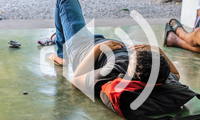
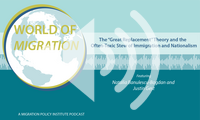
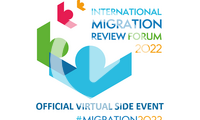
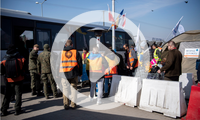
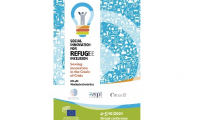
¿Qué sigue ahora luego de que Colombia haya dado un paso histórico en materia de migración?
What Comes Next Now that Colombia Has Taken a Historic Step on Migration?
Coronavirus Is Spreading across Borders, But It Is Not a Migration Problem
The Election Results Are In: It Is Neither the End of Europe nor Its Rebirth
The Dutch Elections: How to Lose and Still Shape the Direction of a Country—and Possibly a Continent?